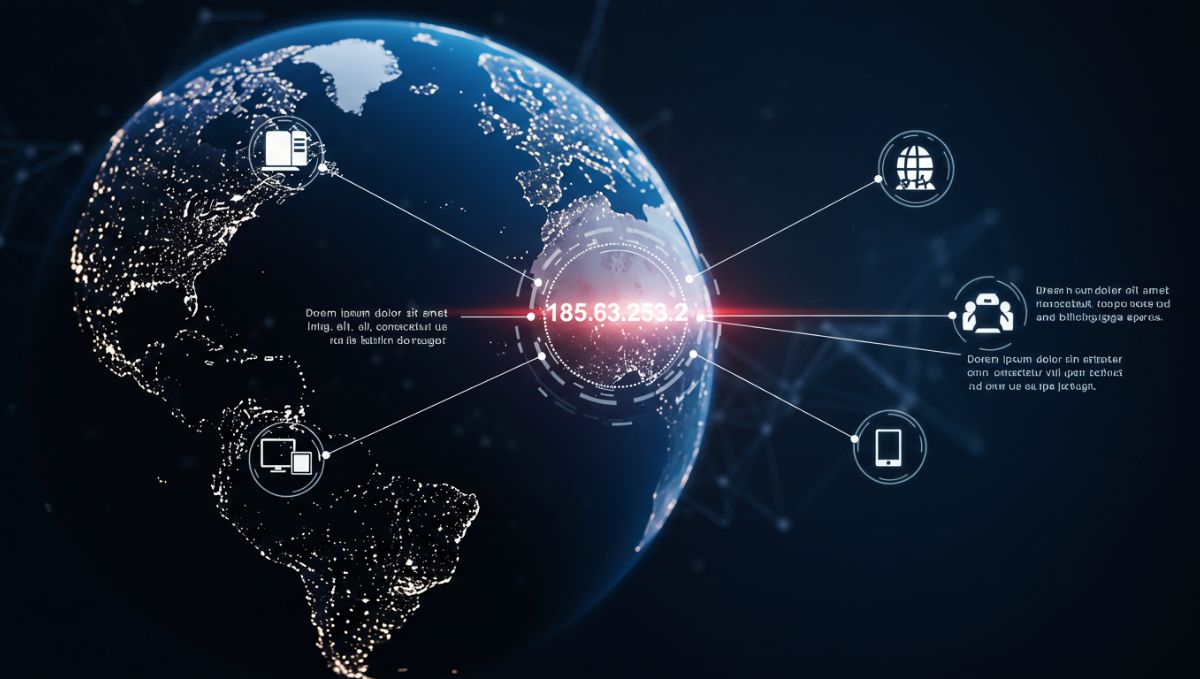Every device connected to the internet has a unique identifier called an IP address. Whether you’re browsing websites, sending emails, or streaming videos, your activity travels through these addresses. Occasionally, people come across a specific IP—like 185.63.253.2pp—and wonder what it means, where it comes from, and whether it poses any security concerns.
This article explains the basics of IP addresses, uses 185.63.253.2 as an example, and highlights how IP addresses are used in networking, geolocation, and online safety.
What is an IP Address?
An IP address (Internet Protocol address) is a numerical label assigned to each device connected to a computer network that uses the Internet Protocol for communication. It serves two main purposes:
-
Identification – It identifies the host or device on a network.
-
Location Addressing – It provides the device’s location, allowing data to be routed correctly.
Think of it like a digital home address: just as postal mail needs a street address to arrive at the right house, online data needs an IP address to reach the correct device.
IPv4 vs. IPv6
The example 185.63.253.2pp is an IPv4 address.
-
IPv4 uses 32-bit numbers, represented as four groups (octets) separated by dots, e.g., 185.63.253.2.
-
IPv6 is the newer standard with 128-bit numbers, allowing far more unique addresses, written in hexadecimal and separated by colons (e.g., 2001:0db8:85a3::8a2e:0370:7334).
While IPv4 is still dominant, IPv6 adoption is growing due to the limited supply of IPv4 addresses.
Breakdown of 185.63.253.2
Let’s look at 185.63.253.2 in context:
-
185 – The first number identifies a block of addresses (called the first octet).
-
63 – This narrows down the range further.
-
253.2 – These numbers identify the exact device or endpoint within the block.
In practical terms, 185.63.253.2 is just one of billions of IP addresses in the IPv4 system.
What Can an IP Address Reveal?
An IP address like 185.63.253.2 can sometimes reveal information such as:
-
ISP (Internet Service Provider) – The company that owns and manages the block of addresses.
-
Geographical Location – A rough location of the server or device, usually at the city or regional level.
-
Type of Service – Whether the IP belongs to a residential user, a business, a data center, or a hosting provider.
However, it cannot reveal personal details such as someone’s exact home address or name without legal access through the ISP.
Common Uses of IP Addresses
-
Routing Internet Traffic
IP addresses make sure data reaches the correct device—whether that’s your smartphone, a server, or a smart TV. -
Website Hosting
Websites are hosted on servers with IP addresses. For example, typing an IP directly into a browser can sometimes load a website. -
Security Monitoring
IP addresses are logged by servers to detect suspicious activity, unauthorized access, or cyberattacks. -
Geolocation Services
Businesses use IP-based geolocation to tailor content, enforce regional restrictions, or serve targeted ads.
Security Concerns with IP Addresses
While an IP like 185.63.253.2pp looks harmless, IP addresses can sometimes be linked to unwanted activities:
-
Hacking Attempts – Attackers may scan IP addresses for vulnerabilities.
-
DDoS Attacks – Flooding an IP address with traffic to overwhelm its server.
-
Phishing or Spam – Some IP addresses are flagged if used for spamming.
If your personal device’s IP is exposed, it usually isn’t dangerous on its own—but combined with poor security settings, it may increase risks.
How to Protect Your IP Address
If you’re concerned about privacy or security, here are ways to safeguard your IP:
-
Use a VPN – A Virtual Private Network masks your real IP by routing traffic through another server.
-
Enable Firewalls – Protects against unauthorized connections.
-
Keep Software Updated – Prevents attackers from exploiting vulnerabilities.
-
Be Careful with Public Wi-Fi – Always use encryption tools when connecting to open networks.
Why People Search for Specific IPs like 185.63.253.2
There are a few reasons why users may look up an address like 185.63.253.2pp:
-
Checking whether it belongs to a legitimate server or a suspicious one.
-
Tracing the location of unusual traffic in server logs.
-
Investigating cybersecurity threats or spam reports.
-
Understanding more about internet infrastructure.
In most cases, the IP turns out to be linked to a server or ISP, not an individual person.
Conclusion
An IP address such as 185.63.253.2pp is part of the vast network that powers the internet. It may look like a random string of numbers, but it serves as a crucial identifier for routing data, hosting websites, and connecting devices worldwide.
While IPs can reveal some general information, such as location and service provider, they don’t expose personal details. Still, protecting your own IP through safe practices like VPNs, firewalls, and secure connections helps maintain privacy and security in the digital age.
